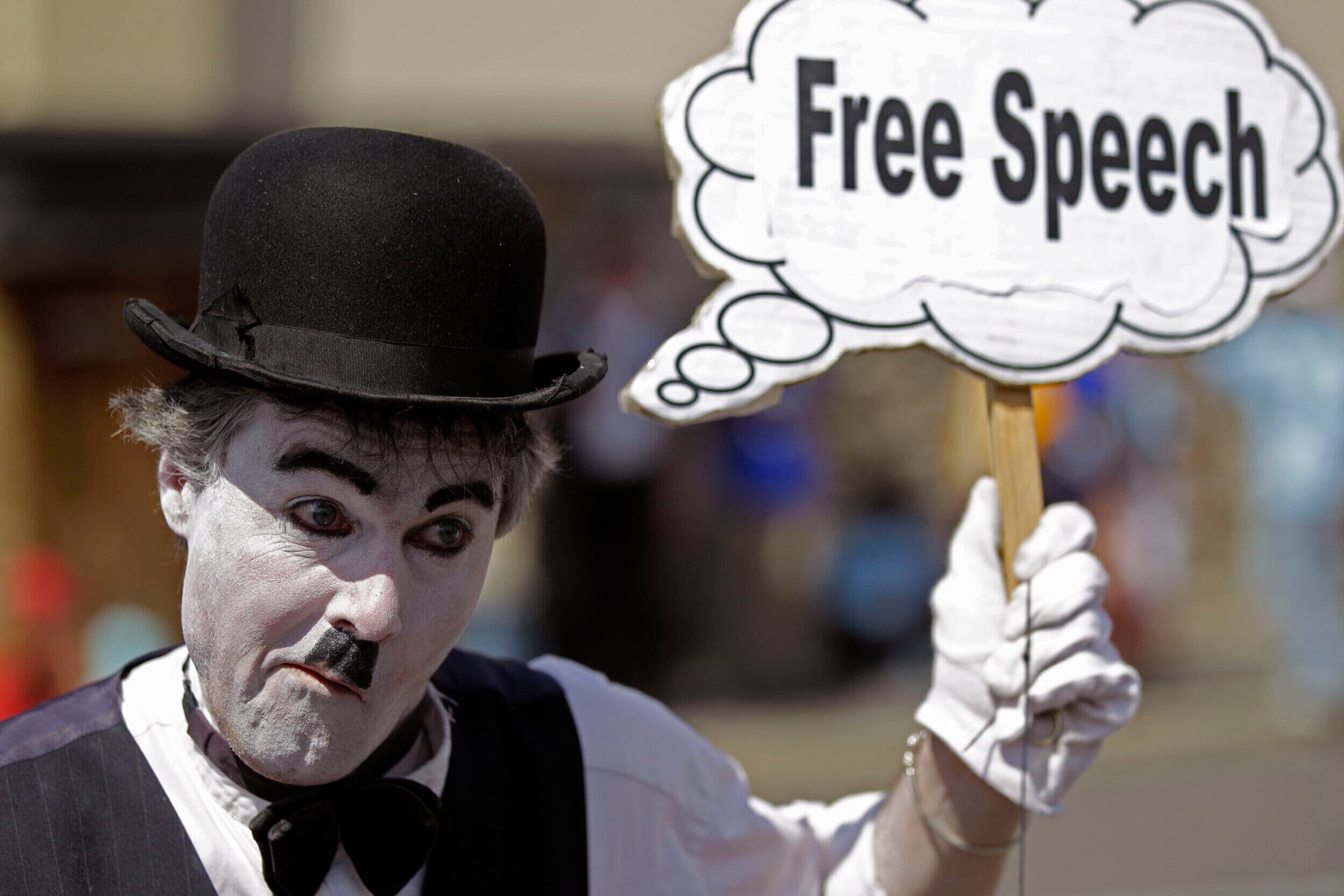Have you ever shared a political meme online? Maybe you follow someone who regularly posts such content, whether it’s a family member with a small online circle or an “internet personality” with an audience of hundreds of thousands.
During the 2016 election cycle, many everyday people who had never been particularly outspoken on politics began to speak up about their beliefs in public for the first time. If you were online during 2015-2016, particularly outside of establishment media programming, you know it was an electric conversation, energized in no small part by the anti-establishment ethos of presidential candidates Donald Trump and Bernie Sanders. Many everyday people found that their ideas resonated with others, and they began to amass significant online followings interested in what they had to say.
Douglass Mackey was one such everyday American. He began posting about politics and his support for Trump via a pseudonymous Twitter account, and at one point, his posts had more online reach than some major media outlets. Today, however, he is facing seven months in federal prison, two years of probation, and a $15,000 fine.
His offense? Posting memes that poked fun at Hillary Clinton and her supporters.
“Surely not!” any sane American would cry upon learning this. “After all, we have the right to freedom of speech under the First Amendment. An American cannot possibly be prosecuted for simply exercising their right to free speech on the internet, can they?”
According to the Biden administration, yes, they can, and yes, they will.
Within the first month of taking office in 2021, Biden’s Department of Justice (DOJ) brought charges against Mackey, arresting him at his home for memes that Mackey posted to his own followers in 2016. The memes were styled like Hillary Clinton ads and stated that you could vote for Clinton from home by phone or by posting online with a hashtag.
The DOJ charged Mackey with violating 18 U.S.C § 241 by conspiring to “injure, oppress, threaten, or intimidate” people from exercising their right to vote. This law was originally enacted in the Enforcement Act of 1870, also known as the First Ku Klux Klan Act, which sought to provide effective enforcement measures for upholding the rights granted by the Reconstruction Amendments to emancipated black Southerners. In other words, the law was meant to allow prosecution of the Ku Klux Klan and other groups for violent voter intimidation.
Far from involving any violence, Mackey’s joke memes were pure speech involving only written expression posted online. He didn’t hand out printed copies to likely Clinton voters on the street corner. He didn’t even directly send the memes online to any specific individuals or groups; he only shared them with his own followers. As it stands, Mackey’s case is the first instance of this 150-year-old law being used to prosecute someone for speech.
Other facts indicate that this a political persecution rather than a principled administration of the rule of law:
Multiple Clinton supporters posted similar memes directed at Trump voters, yet the DOJ chose to prosecute only Mackey, a Trump supporter.
The DOJ charged Mackey in the notably liberal Eastern District of New York, rather than where Mackey is a resident, and despite the fact that there were no victims in that district.
The FBI could not identify anyone who believed and followed the memes’ directions who alleged that the memes caused him or her to not vote.
The district court rejected Mackey’s motion for bond pending appeal despite the fact that Mackey was not convicted of violence and posed no threat of harm to anyone.
Thankfully, the 2nd U.S. Circuit Court of Appeals overruled the district court’s denial of bond pending appeal. Briefing for the appeal is scheduled to be completed in February, so the circuit court should have a decision later this year.
The results of Mackey’s appeal have immense consequences for the future of free speech and the First Amendment in America. If Mackey’s conviction is allowed to stand, the precedent will be set that the federal government can prosecute Americans for any online speech if the government can tie it to voting. Election integrity, candidate eligibility, any form of political humor, etc. will all become verboten wrongthink unless you’re willing to risk up to 10 years in federal prison.
Godspeed to Douglass Mackey. If his appeal is unsuccessful, it will not be a sign that the First Amendment is dying — it will be a sign that it is already dead.
Talmadge Butts is Lead Staff Attorney for the Foundation for Moral Law (www.morallaw.org). Those with constitutional concerns may call the Foundation at (334) 262-1245 or email talmadge@morallaw.org.
The views and opinions expressed here are those of the author and do not necessarily reflect the policy or position of 1819 News. To comment, please send an email with your name and contact information to Commentary@1819news.com.
Don’t miss out! Subscribe to our newsletter and get our top stories every weekday morning.









